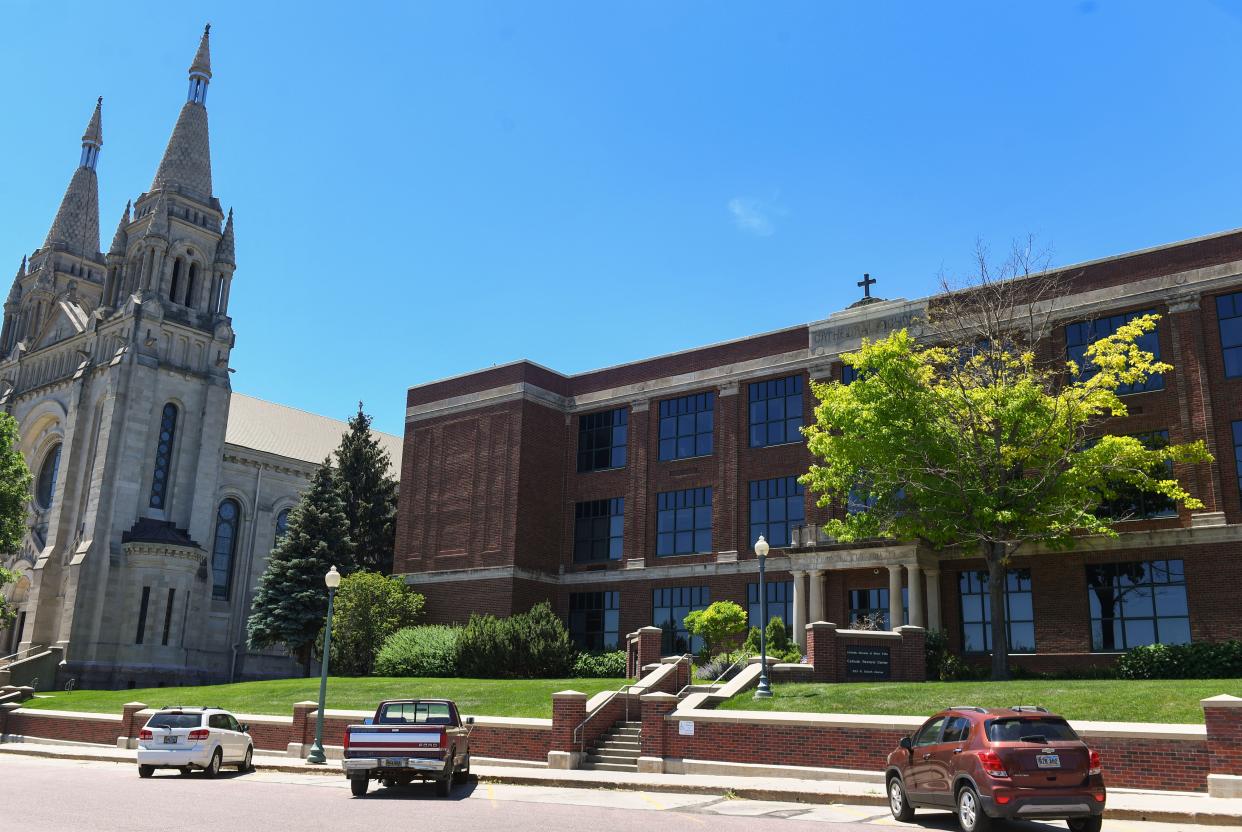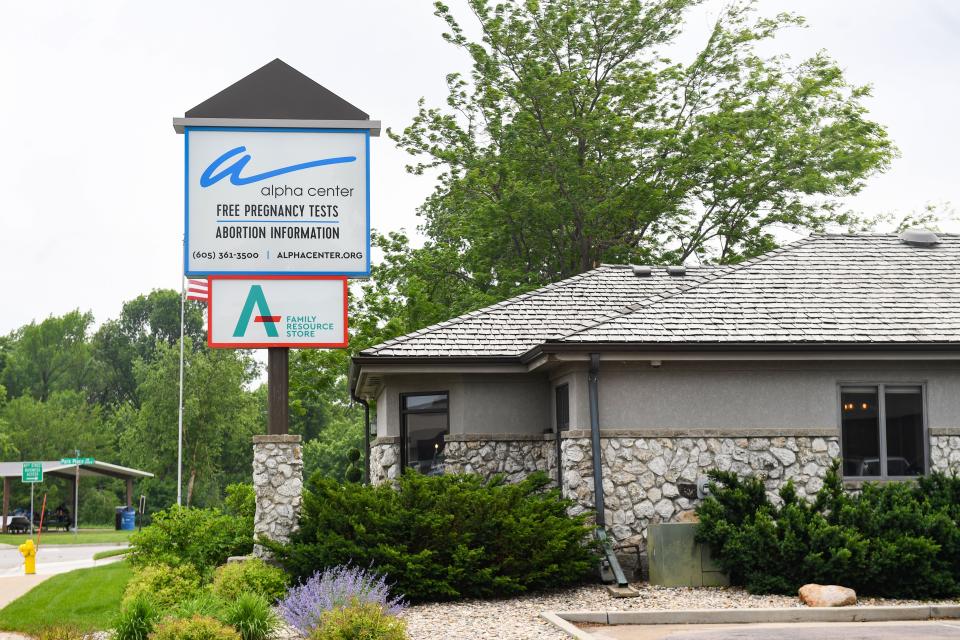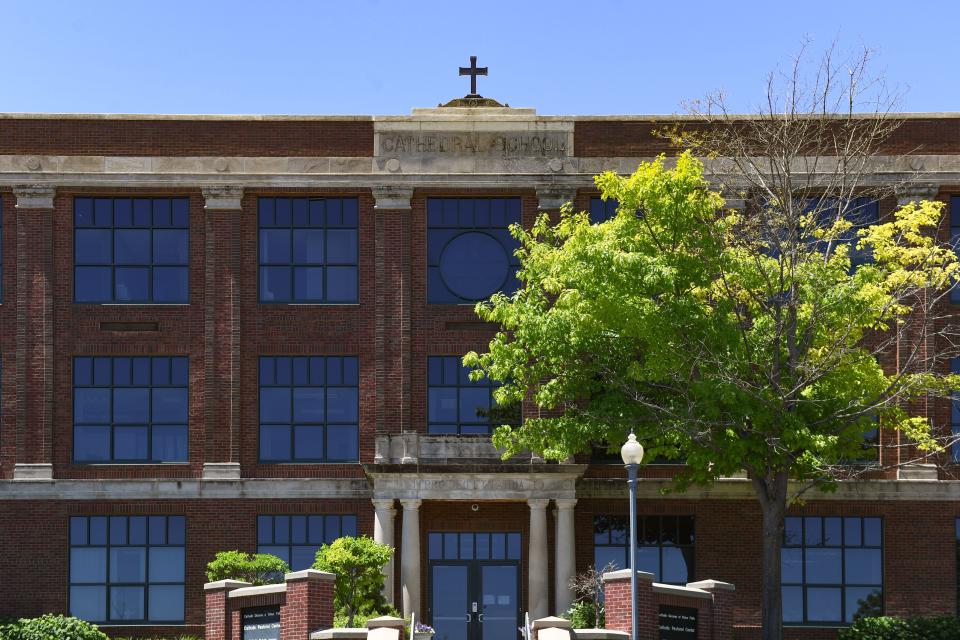Anti-abortion groups have worked to overturn Roe v. Wade. Now victorious, what's next?

Abortion is officially illegal in South Dakota and 12 other states with the final ruling of the U.S. Supreme Court overturning Roe in the Dobbs v. Jackson Women’s Health Organization case on Friday.
Now, anti-abortion nonprofits and pregnancy help centers are gearing up for the first phase of a post-Roe America.
In a statement sent Friday, the Sioux Falls' Alpha Center, a pregnancy help center, wrote an abortion ban will not solve the problems of a "woman who is experiencing an unexpected pregnancy; it is going to make her desperate."
The center reiterated it is there to provide support for pregnant women.
The Alpha Center is one of roughly 3,000 pregnancy help centers across the county and one of two in South Dakota, the second being Rapid City's Black Hills Pregnancy Center. The organizations, along with adjacent Catholic non-profits, have been resound in their mission to provide guidance in managing unplanned pregnancies.
More: How South Dakota abortion access could change if SCOTUS overrules Roe v. Wade
Abortions have stopped in South Dakota. We have prayed for this day, and now it is here.
Now, we must redouble our focus on taking care of mothers in crisis. Help is available for you. Adoption is an option. You are never alone.https://t.co/dlBs6sd7R8— Governor Kristi Noem (@govkristinoem) June 16, 2022
Even before the Dobbs case dropped, Alpha Center's director Leslee Unruh told the Argus Leader in May the center has been dispatching mobile vans equipped with counselors and licensed medical professionals to provide ultrasounds and help pregnant women all over the state in need of resources and services.
What does South Dakota law require of pregnancy help centers?
State statute defines a pregnancy help center as any for-profit or non-profit entity whose mission is to "provide education, counseling, and other assistance to help a pregnant mother maintain her relationship with her unborn child and care for her unborn child."
A pregnancy help center must have a medical director licensed to practice medicine in the state of South Dakota, or a "collaborative agreement with a licensed physician to practice medicine to whom women can be referred."
The law expressly states pregnancy help centers do not perform abortions, are not affiliated with abortions, nor has referred "any pregnant mothers for abortions for the three-year period immediately preceding July 1, 2011."
More: Here's how South Dakota's abortion stance could lead the way for a post-Roe America
Alpha Center and Black Hills, South Dakota's two primary pregnancy help centers, provide interviews and counseling to pregnant women wanting to keep their children upon request, but state law prohibits them from using adoption as an alternative.
They're also not required to disclose religious affiliation with the state health department.
"For purposes of placing the name of a pregnancy help center on the state registry of pregnancy help centers maintained by the Department of Health, it is irrelevant whether the pregnancy help center is secular or faith based," reads current abortion statutes.

Pregnancy testing, ultrasounds, counseling services available
Both Alpha Center and Black Hills Pregnancy Center in Rapid City provide pregnancy testing, ultrasounds, STD testing and mentoring/support programs for pregnant women conflicted about keeping their child, available through in-person or virtual consultations.
According to Alpha Center's website, the Sioux-Falls based center's mission is "clearing the confusion surrounding an unexpected pregnancy with practical support and a message of hope."
Education programs are available at Alpha Center to support mothers and fathers with counseling, life-skills and parenting skills to "empower" them to "move forward with success."
More: Here are four pending abortion policy battles that will come to South Dakota if Roe v. Wade falls
WINGS, or Wholeness, Integrity, Nurturing, Growth and Spiritual, is a sexual integrity program for women of all ages to help "establish healthy, life-long relationships."
They also provide after abortion care services in one-on-one or group settings to address the grief of losing a child. The center's memorial garden has plaques in memory of a lost "unborn child," available to those grieving the loss of a child from a pregnancy.
In its statement, Alpha Center said one way people can help with the mission is to donate money.
"Our services and the increased security necessary to continue providing
those services come at a cost, a cost we never pass on to our clients," the statement read.
South Dakota's two primary pregnancy help centers are important intervenors in an over-decade's long case to tighten up South Dakota's abortion statute. That case challenges the state's third party counseling law, requiring an informed-consent consultation with a pregnancy help center. It sits at the Eighth Circuit of Appeals on a federal injunction, pending the SCOTUS ruling.
The top need is emotional and familial support, says Sioux Falls Catholic non-profit director
In preparation of the SCOTUS decision, Lourdes Center in Sioux Falls, a nonprofit ministry formerly known as Catholic Family Services, has been educating people on the resources they provide to people with unplanned pregnancies help with keeping their children, going the route of adoption or weighing an abortion, said executive director Emily Leedom.
As part of the Catholic Diocese of Sioux Falls, the center works with individuals and/or couples to determine the community resources and government programs they are qualified to receive, according to the state health department's website, and provides pregnancy counseling on a sliding scale.
Through their Mother Teresa donor fund, the center is able to give financial support to those seeking help for an unplanned pregnancy and have considered abortion, because of limited financial resources.
More: Sens. Mike Rounds, John Thune say states should dictate abortion law, not Congress
The fund covers medical and living expenses, food, gas and transportation to bridge the gap between crisis and long-term, sustainable solutions, explained Leedom.
"The No. 1 need I see is emotional and familial support," said Leedom.

Lourdes Center partners with at least 10 pregnancy resource centers, or "holistic care providers," in the state to provide baby items, education, financial literacy and emotional/financial support to people weighing alternatives to abortion or conflicted on one.
The commitment is to support couples and women "well into the journey of their motherhood," and ensure that women, children and families get the support they need beyond birth [of the child], said Leedom.
Oftentimes, women with unexpected pregnancies feel alone, afraid and are in need of a friendship or familial support, said Leedom. The nonprofit Catholic ministry director says the center partnered with Catholic Social Services in 2020 to help connect mothers across South Dakota wanting to place their child for adoption.
"There's a heroism that mothers, for whatever reason, say, 'I'm just not ready to be a mom,' and can choose adoption and give this remarkable gift to a family who is really longing for a child," said Leedom.
Leedom repeated pregnant women will be supported.
"South Dakota is here to help, there's an army of people ready to rally around you," she said. "You're not alone."
Email human rights reporter Nicole Ki at nki@argusleader.com or follow on Twitter at @_nicoleki.
This article originally appeared on Sioux Falls Argus Leader: With Roe overturned, what to know about South Dakota pregnancy centers

